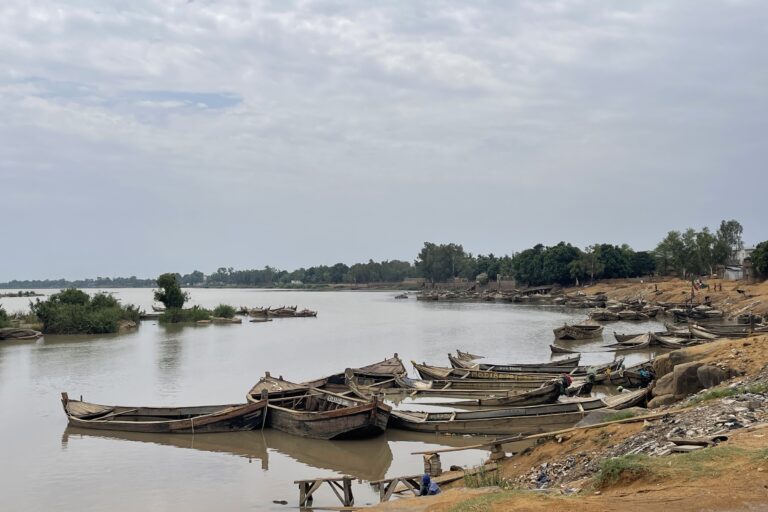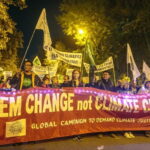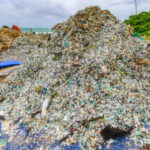BAMAKO — Bourama Traoré and his brother, now aged 20 and 29, grew up along the banks of the Niger River. Their daily routine has always been simple: cast their nets and provide for their family. But now, the wait has grown long and the catch scarce. Six casts yields almost nothing; at best, a handful of small fish. Sometimes the nets come up empty — or filled with plastic waste. According to fishers in Bamako, the Malian capital, this situation is the direct result of human activities — in particular, gold panning by dredging, and plastic pollution — which are degrading the Niger River ecosystem and leading to lower yields for fishers. According to the Ministry of Fisheries, “Mali needs 300,000 metric tons of fish every year, whereas the country’s annual production is 130,000 metric tons.” The Niger River, which runs 4,200 kilometers (2,600 miles), including more than 1,600 km (1,000 mi) in Mali, is becoming increasingly polluted, especially in Bamako. The water is now muddy and littered with plastic bags. A report by Greenpeace estimates that each year, the Niger River carries 35,000 metric tons of plastic waste to the sea. “Every night, local residents take advantage of the darkness to dump their garbage in the river,” says Traoré, the young fisherman. “This irresponsible behavior is a serious problem, not only for us fishers but for the entire fishing industry.” Traoré highlights the toll that plastic waste is taking on his livelihood: “This situation threatens our only source…This article was originally published on Mongabay
Search
Recent Research
Want your Blog Article featured on our website?
Research
Featured News
How to Make Your Home More Energy-Efficient in 2026
A practical, future-ready guide for lower bills and a smaller footprint Rising energy prices and
Sustainable Break Rooms: Greening the Office Pantry
Photo by Rodeo Project Management Software on Unsplash A break room may seem like a
Solar-powered AI streetlights to fund coastal highway construction
Nigeria’s long delayed Lagos-Calabar Coastal Highway is set to be rescued by thousands of AI-driven,
Big Data Analytics Enhances Renewable Energy sector
The sun doesn’t send bills, but energy companies using renewable energy do. And to keep
From COP30 to Sri Lanka, indigenous voices shape climate & food sovereignty
COLOMBO — When Indigenous groups converged at the entrance of the U.N. Climate Change Conference
Another threat to reefs: Microplastic chemicals may harm coral reproduction
As the sliver of a new moon shines over Kāneʻohe Bay, Oʻahu, millions of tiny
A Practical Guide to Choosing the Right Organizer Bins Online
Choosing organizer bins sounds simple — until you start comparing sizes, materials, and specs online.
How Lagos traders struggle as styrofoam gradually disappears in markets
Traders have continued to count their losses about five months after the Lagos State Government





